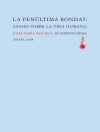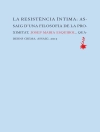This handbook pursues an integrated communication approach. Drawing on the various fields of organizational communication and their relevance for CSR, it addresses innovative topics such as big data, social media, and the convergence of communication channels, as well as the roles they play in a successfully integrated CSR communication program. Further aspects covered include the analysis of sector-specific, cross-cultural, and ethical challenges related to the effective communication of CSR.
This handbook is unique in its consistent focus on integrated communication. It is of interest not only for the scientific discourse, but will also benefit those corporations that not only seek to operate in a socially responsible manner, but also to communicate their efforts to their various stakeholders. Besides its significant value for researchers and professionals, the book can also be used as a reference for undergraduate and graduate students interested in successful CSR communication.
Inhaltsverzeichnis
The Concept of Integrated CSR Communication – Introduction and Definition.- Part I: Theroretical Foundations of Integrated CSR Communication.- Part II: Managerial Aspects of Integrated CSR Communication.- Part III: Integrated CSR Communication and New Media.- Part IV: Intercultural Integrated CSR Communication.- Part V: Special Topics of Intercultural Integrated CSR Communication.- Research Outlook an Conclusion.
Über den Autor
Sandra Diehl is Associate Professor and Vice Head of the Department of Media and Communications at Alpen-Adria University of Klagenfurt, Austria. She received her Ph.D. and her habilitation in Business Administration from Saarland University in Germany. Her research interest include media and convergence management, international and intercultural advertising, CSR and health communication. Sandra Diehl has published in numerous journals, such as the International Journal of Advertising, Media Psychology, Advances in International Marketing, Advances in Consumer Research, the International Marketing Review, and European Advances in Consumer Research. She has authored and edited several books, among them Advances in Advertising Research and Media and Convergence Management. She has international teaching experience and instructs undergraduate and graduate students. She is also board member of the European Advertising Academy.
Matthias Karmasin is director of the Institute for Comparative Media and Communication Studies of the Austrian Academy of Sciences and the AAU (Alpen-Adria University Klagenfurt). Furthermore, he is a full professor and chair for media and communications at the Alpen-Adria University of Klagenfurt, Austria. He is corresponding member of the philosophic-historic class of the Austrian Academy of Sciences. He is an expert for media accountability and he has published extensively on media ethics and media management, organisational communication, communication theory and media practice. Karmasin has developed the media stakeholders’ theory. Recently, he has published an empirical study about the Austrian media and their managers. His professional experiences include business consultancy as cofounder of Medienhaus Wien and several stations abroad (mainly in the US and Germany).
ground-position: initial; background-repeat: initial;‘>Barbara Mueller is a Professor of advertising in the School of Journalism & Media Studies at San Diego State University. She received her Ph.D. in communications from the University of Washington. Her research interests concentrate on the role of culture in international advertising, in addition to marketing to children and pharmaceutical advertising. Her work has appeared in numerous national and international journals, and she serves on the editorial board of the Journal of Advertising. She is the author of ‚Dynamics of International Advertising: Theoretical and Practical Perspectives‘ (Peter Lang, 3rd Edition, in press); ‚Communicating with the Multicultural Consumer: Theoretical and Practical Perspectives‘ (Peter Lang, 2008); and co-author (with Katherine Toland Frith) of ‚Advertising and Societies: Global Perspectives‘ (Peter Lang, 2nd Edition, 2010). She has taught courses in international advertising and international consumer behaviour in Austria and Malta, as well as lectured in Germany and the Ukraine. Additionally, she has developed an online course on international advertising for the University of Leicester, England.
Ralf Terlutter is Head of the Department of Marketing and International Management and program director of the English master program International Management at Alpen-Adria University Klagenfurt, Austria. He is co-founder of the European Advertising Academy (EAA) and was president of the EAA between 2010 and 2012. His work has appeared in numerous journals, including the Journal of Advertising, International Journal of Advertising, Media Psychology, International Marketing Review, European Management Journal, Journal of Medical Internet Research, among others. Ralf Terlutter has lectured in Austria, Germany, the USA, China, Spain and Croatia. He received his Ph.D. from Saarland University, Germany. Then he worked for the international management consultancy Droege & Comp. AG, Düsseldorf, Germany. His current research focus is on international advertising, CSR communication, health communication, and communication in new media.
Franzisca Weder is Associate Professor at the Department of Media and Communication at Alpen-Adria University Klagenfurt, Austria. She has lectured from undergraduate to postgraduate level in the USA (University of Alabama, Dep. of Telecommunication and Film), Germany (University of Eichstätt-Ingolstadt, School of Journalism), Australia (RMIT Melbourne, School of Media and Communication) and New Zealand (University of Waikato, Dep. of Management Communication). Franzisca Weder wrote her doctoral thesis on communication networks and health campaigns and her habilitation (2nd phd) on sustainability communication and public discourses about corporate responsibility. Franzisca Weder’s teaching and research experience and therefore extensive publications are in the fields of Organizational Communication & Public Relations, Media Ethics, Sustainability and CSR Communication, Health Communication and Stakeholder Engagement and Participation.












